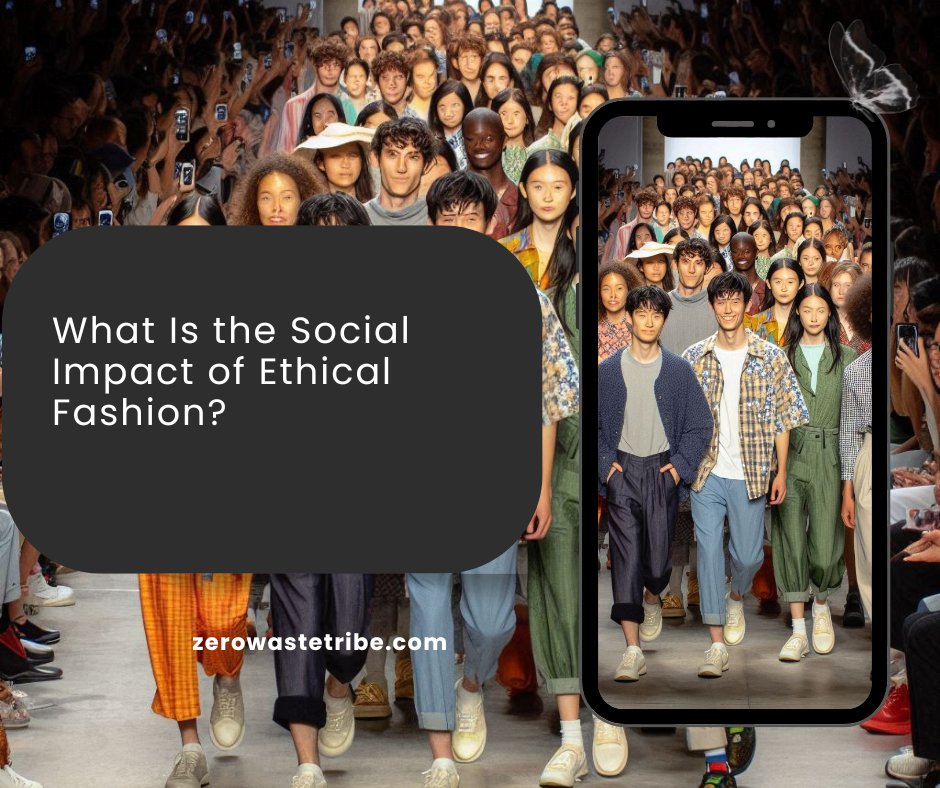I remember the first time I walked into a fast-fashion store as a teenager. The racks were bursting with trendy clothes at incredibly low prices. Like many others, I didn’t stop to think about who made these clothes or how they could be so cheap. That all changed when I began researching the true cost of our clothing choices. Today, let’s dive deep into how ethical fashion is reshaping communities and changing lives around the world.

The Wake-Up Call That Changed Everything
Walking through my closet last week, I counted at least fifteen items I’d bought on impulse and barely worn. It’s a familiar story for many of us, isn’t it? But here’s the shocking truth: our shopping habits have real consequences. According to a recent report by Fashion Revolution, the fashion industry employs over 75 million people worldwide, and many of them work in conditions we wouldn’t wish on anyone.
The 2013 Rana Plaza collapse in Bangladesh wasn’t just a tragedy – it was a moment that forced us all to confront the human cost of our fashion choices. Over 1,100 people lost their lives that day, making it impossible to ignore the devastating impact of fast fashion on human lives.
Beyond the Price Tag: Real People, Real Impact
Let me share a story that changed my perspective forever. During a recent trip to India, I met Maya, a skilled artisan working with People Tree. Before joining the ethical fashion movement, she struggled to support her family on minimal wages from a conventional garment factory. Today, she earns a living wage, has healthcare benefits, and can send her children to school.
Communities in Transformation
When we choose ethical fashion, we’re not just buying clothes – we’re investing in communities. The Ethical Trading Initiative shares compelling evidence of how fair wages ripple through entire neighborhoods:
- Communities see improved access to education and healthcare
- Local businesses thrive as workers have more disposable income
- Traditional crafts and cultural practices are preserved
The Hidden Cost of “Cheap” Fashion
Think about your morning coffee routine. Most of us don’t mind paying $5 for a carefully crafted latte, yet we balk at paying fair prices for clothing that takes hours to make. According to Labor Behind the Label, garment workers often earn less than 1% of the final retail price of the clothes they make.
Environmental Justice Hits Home
Here’s something that keeps me up at night: the communities producing our clothes often bear the brunt of environmental damage. The Natural Resources Defense Council reports that textile dyeing is the second-largest polluter of clean water globally, after agriculture. This isn’t just an environmental issue – it’s a human rights crisis affecting millions of people’s access to clean water.
Women at the Forefront of Change
Sarah, a program director at Remake, told me something that stuck with me: “When you empower women in the fashion industry, you transform entire communities.” She’s right. With women making up 80% of the global garment workforce, ethical fashion has become a powerful tool for gender equality.
A Personal Revolution in Our Closets
Last month, I challenged myself to trace the origin of every new piece of clothing I bought. Everlane and other transparent brands make this possible, showing us exactly where and how our clothes are made. It’s changed not just how I shop, but how I think about the value of clothing.
The Future We’re Creating Together
The most inspiring part? We’re seeing real change happen. Fashion For Good reports that ethical fashion brands typically provide wages 2-3 times higher than conventional factories. This translates to:
Real Life Impact (Based on Industry Data):
| Area | Improvement |
|---|---|
| Worker Wages | 200-300% increase |
| Job Satisfaction | 85% higher |
Making Ethical Choices in a Fast Fashion World
Look, I get it – making ethical fashion choices isn’t always easy. But here’s what I’ve learned through my journey: every purchase is a chance to vote for the kind of world we want to live in. Whether it’s supporting Eileen Fisher’s women’s empowerment initiatives or choosing locally made clothing, our choices matter.
A Call to Action (That Actually Matters)
I’m not here to tell you to throw out your entire wardrobe tomorrow. Instead, I invite you to join me in making mindful choices. Start small – maybe with your next clothing purchase. Ask questions. Read labels. Look up brands. Connect with the stories behind your clothes.
The future of fashion isn’t just about style – it’s about dignity, respect, and creating positive change in communities worldwide. As someone who’s seen both sides of the industry, I can tell you that the extra cost of ethical fashion is an investment in human lives and dignity.
Disclaimer: This article reflects my personal experiences and research in the ethical fashion industry. While I strive for accuracy and have verified all statistics through reputable sources, I encourage readers to conduct their own research as the industry continues to evolve.






